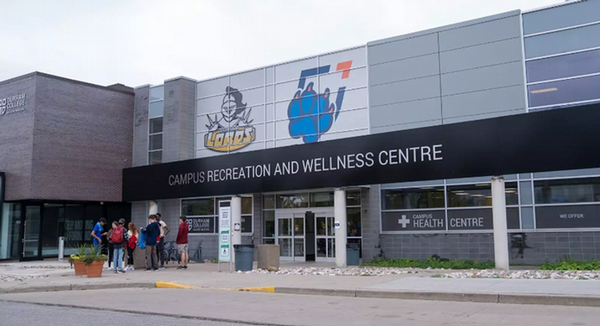Mental Health Services at Ontario Tech University
September 11, 2023
Mental health issues are a growing concern within our student population. Between 18-22% of Ontario post-secondary students suffer from mental health illnesses. This blog post will discuss available campus mental health services and how students can access them.
The prioritization of student mental health is an important topic of discussion. To gain insight into this subject matter, we interviewed Bonnie Pedota. Bonnie Pedota is a Mental Health and Wellness facilitator who works with Ontario Tech Student Mental Health Services. With a specialized honours in psychology and a bachelor's in education, Bonnie has the necessary credentials needed when seeking to strengthen student mental health.
Q&A:
What negative habits do you see in university students that can be detrimental to their mental health?
Procrastination is the main one. The idea that you have to do it on your own and feel incapable of doing a task can really hinder a student's academics.
What type of students are at higher or lower risk for acquiring mental health problems?
University life is the most stressful time in someone's life. Students have extenuating life events or genetic predispositions that put them at a higher risk for developing mental health issues.
In your position, what types of issues do you help students through?
My specific role is conducting intake assessments. This assessment consists of analyzing presenting issues and how we can connect the student with resources that may be helpful. In intake, we encounter and accept all problems.
Students may have a preconceived notion that coming to mental health services must be academically based; do you tackle everything?
Yes, anything that impacts your function or level of stress can impact your academics. It could be a small thing that could become big if it's not addressed or it could be a long-standing issue.
What Mental Health Services are available to students on campus?
The Student Mental Health Services website has various self-serve links to online resources; these are all purely self-led. We have our on-campus intake appointments for students seeking guidance and knowledge. Beyond intake, we refer students to various resources, counsellors, programs within the community and other on-campus student services. In addition, we provide “same-day de-stress appointments” for students in distress. They can email a self-referral form. Staff will then try and accommodate within 24 hours. OTU Mental Health Services runs ongoing mindfulness and wellness group sessions; no referral needed. The “Behavioural Therapy Skills Group” is the exception as an internal referral from within the team is needed.
When should a student access these services?
As an individual, you know yourself best. If you lack the ability and self-motivation to perform routine tasks over two weeks, seek help, book an intake and seek available services. The exception to that would be thoughts of suicide, substance issues, or self-harming. Do not wait two weeks, seek immediate attention.
What strategies do you suggest for students experiencing academic-related anxiety?
Peer tutoring, available TAs, study groups, and many campus services can be utilized if students are struggling academically. Students with time management-related issues can refer to the student learning center and participate in workshops that discuss how to manage your time. It's important to implement enjoyable activities in your calendar to take a break from academics.
How can students make sure that they are prioritizing both academics and mental health?
Every student is different. Some students just want to finish their undergrad and get a job right away. Some people want to get a 4.0 to get into grad school. I think it depends on where you are headed next. Ultimately health is the most important thing. The art of living and what needs to be done is hard to balance.
What would you say to somebody who thinks their mental health doesn't matter or isn't important?
Some people don’t seek help because they feel like their problem isn’t big enough. Small problems can become big problems if we don't address them at the beginning. If it's a problem for you, it's a problem. Come and find out what could be done to help.
Is there anything else you think students should know about mental health as a student?
People are not as kind to themselves as they need to be. It's a learned skill to be gentle with yourself. University is a stressful time. It can take a toll on your friendships, sleep, or academics. If you don't feel normal, don’t hesitate to reach out. We have 2000 students registered with us.
Conclusion
Managing your mental health can be very tricky as a student. Thankfully, with the mental health services offered by the university, there are many options to tackle the issues that you may be experiencing, making your university experience a little bit easier. To get started, follow this link
References
https://smho-smso.ca/about-student-mental-health-in-ontario/






